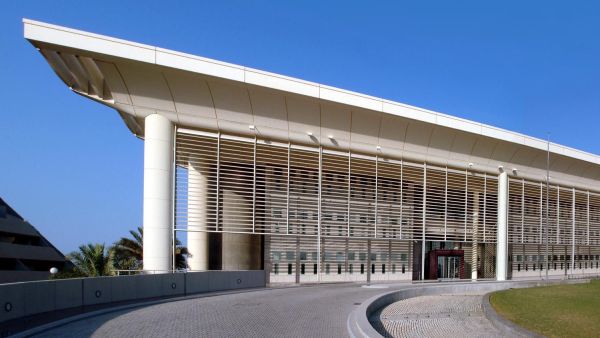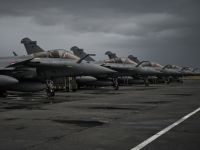Energy Investments In MENA Region Supported By Elevated Oil And Gas Prices

The Arab Petroleum Investments Corporation (APICORP), a multilateral development financial institution, has issued its annual Top Picks 2022 outlook on the key trends that are expected to shape the MENA energy markets landscape this year.
Among the trends the report examines is the impact of oil and gas prices on energy investments in the region and the main factors weighing down on broader economic recovery. The report notes that the uptick in regional energy investments, which registered a modest US $13 billion increase in APICORP’s latest five-year outlook issued in Q2 2021, will continue over the mid-term.
“Despite the volatility in commodity prices which is expected to persist throughout 2022, the good news in the short-term is that oil and gas prices will likely remain elevated throughout the year, providing support for energy investments including renewable energy and ESG-related projects. Power sector investments in MENA are also expected to continue to thrive, with an accelerating shift towards renewables. Collectively, the region is expected to add nearly 20 GW of solar power over the next five years,” noted Dr. Ahmed Ali Attiga, CEO of APICORP.
Energy transition tinted with mixed policy signals
The MENA region will take center stage in the ongoing global energy transition as all eyes shift to Egypt, which will host COP27 in November -- and UAE for COP28 in 2023. Yet while the transition continues to steadily gain momentum, the report notes that it may be marred by mixed policy signals from governments as they attempt to balance imperatives which are oftentimes very difficult to align: emissions reduction, energy affordability and energy security.
Thus, a sustainable and comprehensive policy is needed in order to avoid tilting the policy scale too far towards in favor of one of these factors, as this may lead to unintended consequences such as market distortions, heightened volatility, and energy shortfalls.
Volatility in commodity prices with uncertainty in energy markets
The already substantial pressure on policymakers is expected to be further exacerbated by continued volatility in commodity markets in 2022 due to the pandemic, uncertainty over macroeconomic policy, and supply chain disruptions. Despite the modest –-albeit uneven—recovery in 2021, it will take time for this improvement to migrate downstream and ease cost pressures this year.
As for the energy markets, the report forecasts that they will remain comparatively stable during 2022 due to higher oil production by OPEC+ and non-OPEC countries and increased gas production and LNG supply. Brent is expected to average between US $65/bbl. and US $75/bbl. As for gas, the JKM and TTF/NBP hub prices in Asia and Europe are expected to cool down considerably from their all-time highs of 2021, especially after the winter season.
Energy investments in MENA supported by elevated oil and gas prices
The report’s analysis of energy investment trends suggests that the expected robust oil and gas prices in 2022 have triggered an opportunity to return to pre-pandemic activity. As a result, energy investments in MENA are forecast to grow in 2022 from the US $805 billion in APICORP’s MENA Energy Investment Outlook 2021-2025 and continue in the upcoming 5 years, namely on the strength of sustained higher oil and gas prices and planned unconventional gas and upstream investments.
For petrochemicals, the drive for further integration and rationalization will continue with reconfigurable petrochemical plants shifting to high-margin products such as plastic packaging films and healthcare and hygiene products.
“The strong pipeline of investments we are seeing in the downstream projects reflects the region’s push to direct more funds to this sector, especially in brownfield petrochemicals projects versus greenfield ones. This makes sense in light of the current market conditions which favor improving cost and operating efficiencies in existing projects rather than sheer expansion,” said Nicolas Thevenot, Managing Director of Corporate Banking at APICORP.
New COVID variants to weigh down economic recovery
The uncertainty around COVID recovery will continue to influence how market dynamics will ultimately play out. Given the global vaccine inequity and a constantly evolving virus, governments are still grappling with the dilemma of public health versus economic recovery.
In addition to global trade, supply chains and services, the current surge in cases globally will also adversely affect international travel and tourism. This will dent economic growth during 2022, which has already prompted a slight downward revision of the 2022 GDP growth forecasts in some regions and a likely asymmetric global recovery that is not necessarily sustainable for all countries.
Fiscal austerity measures to curb soaring inflation
Another uncertainty stems from the need for governments to introduce fiscal austerity measures to rein in spending and curb soaring inflation. Although markets ended 2021 with high returns (27% in the case of the S&P 500 index), high jobs growth and soaring commodity prices pushed inflation rates higher.
A fear of stagflation looms as public fiscal stimulus packages are withdrawn, asset purchasing programs are tapered and interest rates rise. While these measures will very likely cause economic recovery to slow down, the lagging unemployment rates are expected to remain relatively high amid a simmering inflationary cycle that may turn out not to be transitory after all.
To read the full report, click here.
Background Information
Arab Petroleum Investments Corporation APICORP
The Arab world’s energy wealth is undoubtedly one of its greatest economic strengths. These resources represent enormous value but they cannot create economic growth without strong institutions that actively work to advance innovation, efficiency, and value creation.
APICORP was created by the Organisation of Arab Petroleum Exporting Countries (OAPEC) in 1975 as a commercially-focused financial institution that can help provide nuanced and efficient financing options to the Arab energy industry. Over the last four decades, APICORP has worked to raise capital access and enhance the financial stability and performance of the Arab energy industry through an array of strategic equity investments, project loans, trade finance, advisory and research.






